It's a little bit of a... well, マニア sort of learning method, favored by "polyglot" types, but
Glossika is a pretty great line of products for learning how to
speak a language. The gist is that you have 3000 sentences per package, the written component for each of them having the source language (most likely English but others exist), the target language interpretation (Japanese for most of us), the IPA key (only useful to weirdos like me!), and a phonetic guide. The real meat-and-potatoes is, of course, the audio, which is broken into the GMS and GSR files, the former in linear order, the latter in a sort of Anki-like sequence. How you go about using them used to be largely an "up to you" sort of affair, but they've recently decided to be a lot more helpful and give a schedule as an idea.
Why do I consider it a good resource, then? Mostly because, again, the focus is speaking above all else; everything's about learning how to recognise sentence patterns
while you're given comprehensive input. My biggest problem for the longest time was that, even though I had good theoretical knowledge of how a sentence is put together in Japanese, I could barely string together words. Knowing vocabulary and grammar really isn't the same as knowing the most* natural way of expressing a thought in your target language, and that's what Glossika focuses on. More than that, the sort of rote memorization and committing to muscle memory that the whole thing is based on is nice for building a "toolkit" in the target language. Once you know the (full sentence) patterns and have a reasonable vocabulary, there's no reason you can't swap words out and get a decently good and comprehensible result in-context.
Now, I will recommend it with a couple of caveats. The first is that it's not meant for people learning a language from scratch, nor is it meant to be used as a catch-all. You're still gonna need at least some good grammar references and vocabulary building material, in other words. The second is that it's not perfect in terms of the translations/interpretations in the case of the Japanese modules. The speaker-slash-translator makes some rather odd choices and/or slip-ups on some sentences, and what's written in the book may not match what's spoken. It's kind of distracting, but it's overall not
that bad.
If this looks like the ramblings of a True Believer, well, that's because it is. I have no affiliation with Glossika (other than dropping a couple hundred bucks on modules!), but I sure as hell love their products for what they offer strange people who learn languages for fun, and I think more people should know about them.
(*) It's up to the whims of the translator, of course. Some sentences may some across a lot more stilted or informal in tone, or sometimes the wording might not quite "match" the source sentence. It could have something to do with context, or it could just be capriciousness. Either way, it's best to consider what's presented as the best-effort approximation to a natural translation of the English source.



